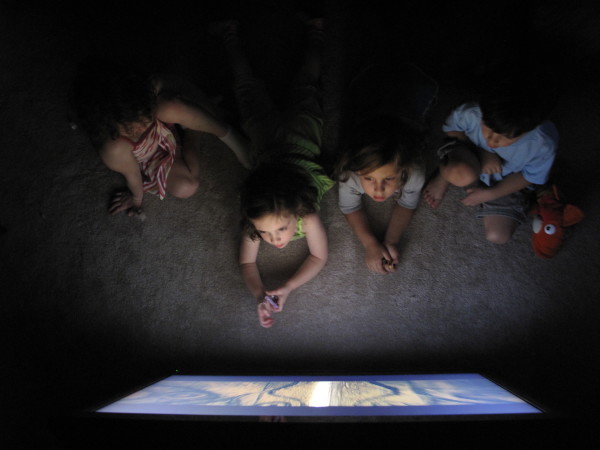14The use of electronic devices like TV and smartphones among children and adolescents has exploded in recent years. Children as young as toddlers play games on parents’ smartphones, and adolescents spend much of their days glued to their phones.
As a consequence, children have less time during the day to play, talk, or sleep than they have had in previous decades. The American Academy of Pediatrics suggests that parents guide their children in finding a healthy balance between the time children spend on electronics and the time children spend interacting directly with the real world.
Excessive media use contributes to health problems like lack of sleep, obesity, aggression, and behavioral issues. Children who spend more than three hours a day on social media are more likely to have mental–health symptoms — possibly because spending too much time in virtual worlds may delay social and emotional development.
Apps labeled as “educational” for phones and tablets are not actually supported by evidence or by educators. While it might be easy to simply turn on a smartphone to quiet a fussy child, researchers from the University of Michigan C.S. Mott Children’s Hospital suggest that using devices too often may limit a child’s ability to regulate their emotions.
To avoid overusing electronics, some measures suggested include stopping digital media use an hour before bed, and setting certain times (such as meal times) to be free of electronic devices.
Image Source: Albert Mollon
For young children in particular, who need time to grow and learn certain skills, the American Academy of Pediatrics suggests limiting electronic use to one hour a day!
However, not all uses of smartphones are created equal. While games and other apps might limit emotional regulation, using phone functions to facilitate interactions with others can be beneficial to children.
Video chatting helps toddlers learn social skills, while watching science videos can prove educational. Streaming music to dance to, looking up new recipes to cook together, taking pictures, and watching movies can strengthen family connections. The key to limiting use of digital devices, researchers said, is when adults help children connect their media use to the world around them.
Feature Image Source: Kids Watching by Michael Cramer










